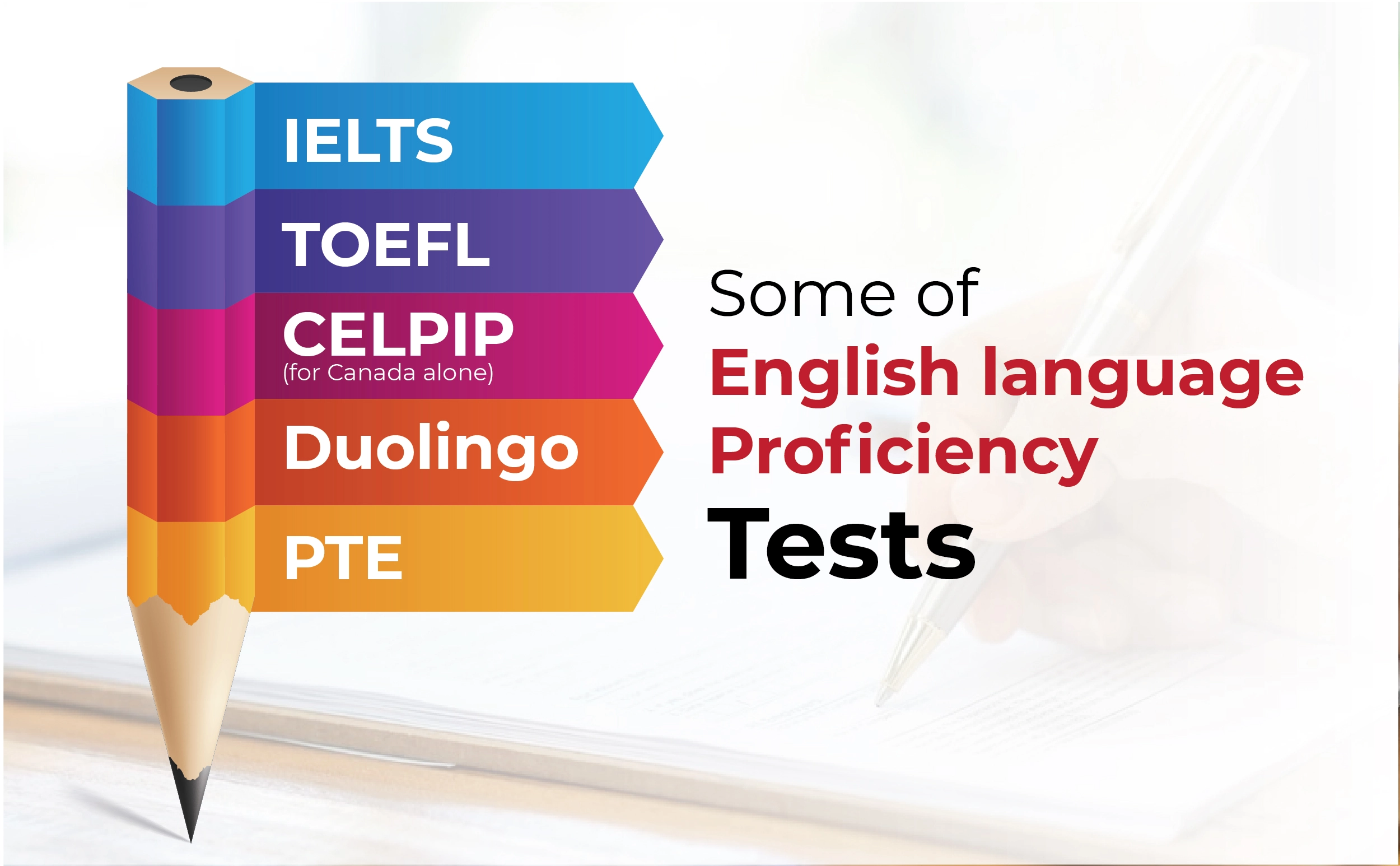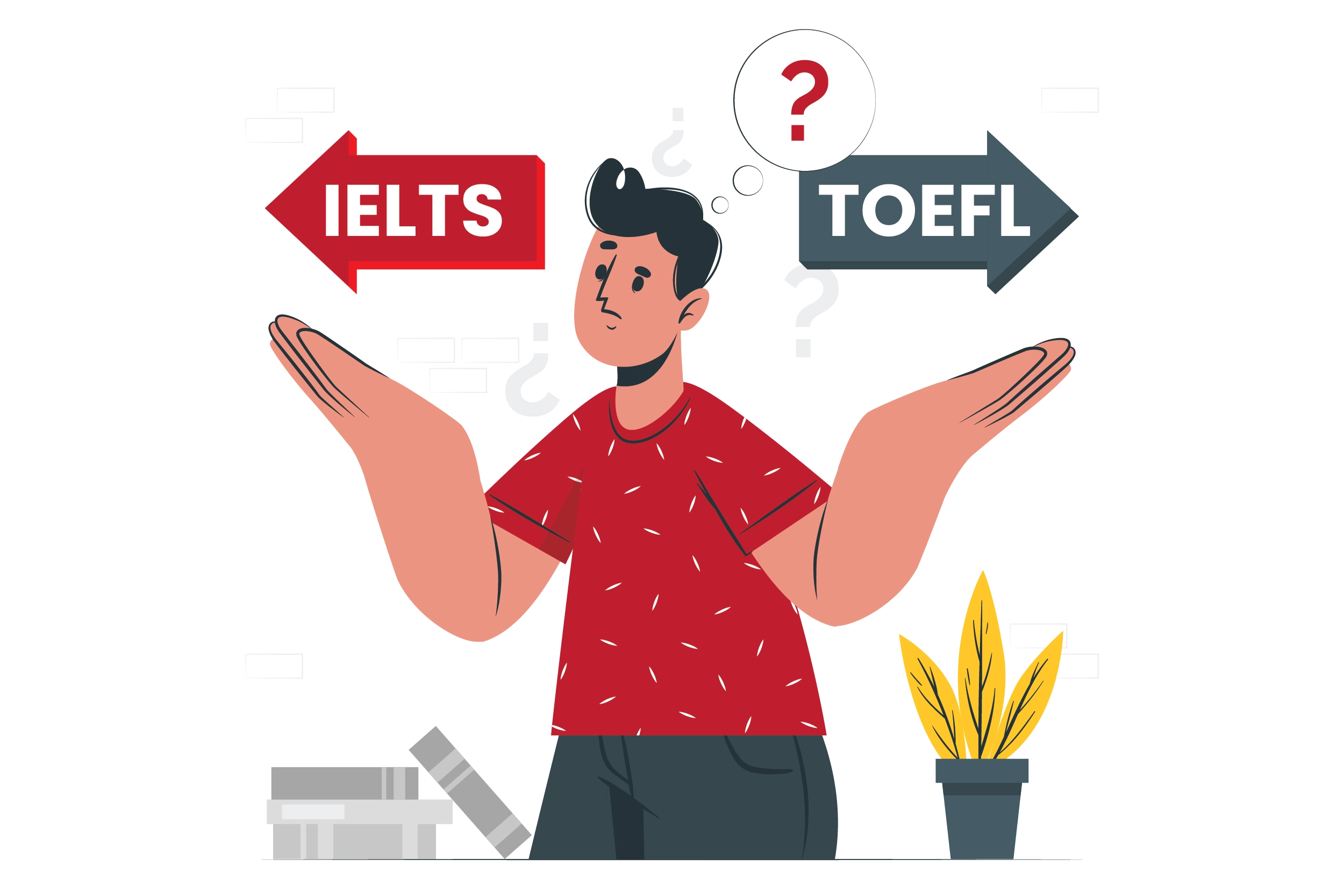Are you someone who is planning to migrate abroad for education, settlement, or entrepreneurship? I suppose you might be looking for a way to prove your English proficiency to get into the country that you always wanted to. Then you must have come across English proficiency tests such as IELTS, TOEFL, and many more. English-speaking countries like Canada, Australia, The US, and The UK will all require immigrants and international students to prove their English language skills so that they can get along with other people in the country wherever they are and be a part of the region and get accustomed to the language spoken in there.
Taking an English Language proficiency test will help you prove how proficient you are in English. Some of English language proficiency tests include,
?IELTS
?TOEFL
?CELPIP (for Canada alone)
?Duolingo
?PTE

The most common tests among the listed are IELTS and TOEFL. But it’s perplexing to understand the how are these 2 tests different from each other. There might be questions like what are the differences between IELTS and TOEFL, which test should be taken? what are the rounds in both the tests? And on and on…
In this blog, for the next couple of minutes, you will have a walkthrough of the difference between IELTS and TOEFL, the ins and outs of taking the tests necessary and every other question you have related to the language proficiency tests.
Hop on!!
IELTS – To know the difference between IELTS and TOEFL
IELTS, abbreviated as International English Language Testing System is a language proficiency test that is accepted by almost all the English-speaking countries in the world. People from countries of citizenship whose official language is not English are entitled to take up this test to migrate to an English-speaking country anywhere in North America. This is to prove their English language proficiency to live, study or work in the country.

IELTS was started in the year 1980 and since then it’s been providing English proficiency evaluation to enormous abroad aspirants. And notably IELTS remains the most popular and widely taken English language proficiency test till date. Basically, there are 2 modules of IELTS tests,
?Academic IELTS
?General IELTS
Academic IELTS – This is the type of English test to examine the proficiency of international students who are aspiring to fly to their dream destination to pursue their higher education.
General IELTS – This test is for immigration aspirants who are willing to migrate to countries like Canada and Australia. Applicants have their language skills assessed with this General IELTS test.
Both Academic and General IELTS have 4 rounds to test the abilities of,
?Listening
?Speaking
?Reading
?Writing
The scores are termed as band scale here. Each band scale ranges from 0 to 9 while 0 being the lowest band scale and 9 being the highest. There is no pass or fail in IELTS exam, the higher your band score, the better your proficiency.
IELTS scorecard and level for Internet Based Test
| Band Scale | Level |
| 9 | Expert User |
| 8 | Very Good User |
| 7 | Good User |
| 6 | Competent User |
| 5 | Modest User |
| 4 | Limited User |
| 3 | Extremely Limited User |
| 2 | Intermittent User |
| 1 | Non-User |
| 0 | Did not attempt the test |
Did you know: Cambridge English Language Assessment and British council launched IELTS as English Language Testing Service (ELTS) in 1980.
TOEFL – To know the difference between IELTS and TOEFL
The Test of English as a Foreign Language is a language proficiency test to examine the English language ability of a person who plans to migrate to an English-speaking country to settle, work, or study, whose native language is not English.

TOEFL was introduced in 1964 by the Educational Testing Service (ETS) and has been assessing the English Language Proficiency of millions of abroad aspirants since then.
Like IELTS there are 4 rounds in TOEFL, such as,
?Listening
?Speaking
?Reading
?Writing
The scores of TOEFL in each round range from 0 to 30, and total evaluation is done out of 120 for all the 4 rounds.
TOEFL scorecard and level for Internet-Based Test
|
TOEFL iBT Score
|
Level |
| 118 – 120 |
Expert User |
| 115 – 117 |
Very Good User |
| 110 – 114 | |
| 102 – 109 |
Good User |
| 94 – 101 | |
| 79 – 93 |
Competent User
|
| 60 – 78 | |
| 46 – 59 |
Modest User
|
| 35 – 45 | |
| 32 – 34 |
Limited User |
| 0 – 31 |
Extremely Limited, Intermittent or Non-User |
What are the differences between IELTS and TOEFL?
The prime difference between IELTS and TOEFL is, IELTS is IELTS and TOEFL is TOEFL! ?? okay… calm down! Tried adding a bit of sarcasm!

To be honest there are no much differences as 2 different bodies like British Council and Educational Testing Service govern the tests. But there are some differences to spot between IELTS and TOEFL on the basis of their evaluation procedures and performance.
Did you know: Both IELTS and TOEFL are conducted as paper-based tests and Internet-based tests. Now, most of the institutions are accepting internet-based test results and some of the immigration procedures use such results too.
| IELTS | TOEFL |
| Established in 1980 by the British Council, Cambridge Assessment English, etc… | Established in 1964 by the Educational Testing Service (ETS) |
| The most popular language proficiency test approved by almost all the English-speaking countries | The oldest language proficiency test that’s in practice which is equally accepted by countries just like the IELTS test |
| Has two modules – Academic and General.
Academic – For International students General – For Immigration purposes |
TOEFL iBT is an internet-based test that’s taken for immigration and student visa purposes |
| Test scores are valid for 2 years | Test scores are valid for 2 years |
| Open to all. No official pre-requisite for taking this test | Open to all. No official pre-requisite for taking this test |
| Evaluation time may range from 2 – 21 days from the date of giving your test | It might take 4 – 8 days to have your results from the time of giving your test |
| Total Duration will be 2 hours and 55 minutes | Duration ranges from 2 hours and 47 minutes to 3 hours |
Recommendation
Are you planning to study abroad or migrate to an English-speaking country like Canada or Australia? Then, your language proficiency evaluation will be an important requirement.
You can either take IELTS or go for TOEFL. Both are merely going to serve the purpose for what you attended the exam. And for pristine immigration and overseas education assistance along with English language proficiency test guidance, please connect with CanApprove!
Our education coordinator will help you to ease the process!
Thanks for reading ?





